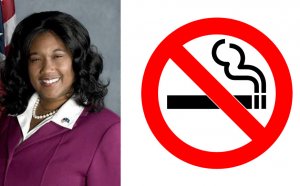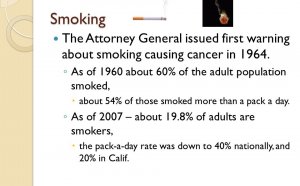
Non smoking States
Most states have some laws that protect smokers from discrimination. However, due to the health hazards related to smoking, smokers are not completely protected in the same way that non-smokers are. For example, smokers can be required to pay more for their company health insurance and some localities have banned e-cigarettes at work. Non-smokers also have legal rights that relate to smoking and smoking areas in the workplace. To learn more about smoking and the workplace, read below:
1. Do I have the right to smoke at work?
Most states regulate smoking in the workplace to some degree. There is no federal law that governs smoking at work, so smoking regulations vary significantly from state to state. Some states prohibit smoking in indoor areas of the workplace. Some states prohibit smoking in workplaces, but allow employers to designate a smoking area.. Other states ban smoking altogether in the workplace. And a few states have NO laws restricting smoking at work. As for smoking outside the workplace, there are some states that permit smoking only in certain establishments, like bars, and other states that permit smoking everywhere, except in certain places, like hospitals and restaurants.
In addition to state laws, local city or county laws may impose stricter regulations on smoking at work. Even if there is not an applicable law, employers can have their own workplace smoking policies that prohibit smoking entirely or limit it to certain areas, like a break room, or outside area. While these laws have been challenged in court, they are generally upheld. To find out what the smoking laws are in your state, see our page on State Smoking Laws.
2. Do I have the right to a workplace free from secondhand smoke?
Some states have passed laws either requiring that the workplace be smoke free, or giving employers the right to declare their workplace smoke free. Other states have laws allowing employers to designate a specific "smoking area" that is separated from the workplace so employees may easily avoid exposure to second-hand smoke. However, if your state does not have a law, and your employer does not have a policy, then you may not be protected if your coworkers choose to smoke.
3. Is being around coworkers who smoke hazardous to my health?
Secondhand smoke leads to thousands of nonsmoker deaths per year from lung cancer and heart disease. Being around coworkers while they are smoking can be hazardous to your health, especially if you are breathing in tobacco smoke every day at work. The CDC reports that most exposure to secondhand smoke occurs in homes and workplaces.
4. Does workplace smoking violate health and safety laws like OSHA, which regulates exposure to hazardous substances?
OSHA, short for the Occupational Safety and Health Act, gives you, as an employee, the right to have a safe and hazard-free workplace. OSHA does have indoor air quality standards, but tobacco smoke almost never exceeds theses limits. In rare and extreme circumstances - for example, when tobacco smoke combines with another airborne contaminant in the workplace - the OSHA standards may be exceeded and OSHA will require the employer to remedy the situation. In general, exposure to tobacco smoke will be regulated solely by state laws, not OSHA or other federal laws. For more information about OSHA see our site's workplace health and safety page.
5. I have a health condition that is aggravated by smoking. Is my employer required to accommodate me by preventing others from smoking?
An employee that has a legitimate health condition, which goes beyond mere annoyance, may require their employer to prevent harms from secondhand smoke. If you have a health condition that is aggravated by secondhand smoke, you should inform your supervisor of your condition and ask for an accommodation to prevent additional harm. Many state laws explicitly require employers to provide certain accommodations to non-smokers.
Examples of accommodations include segregation of smokers and non-smokers, restricting the areas where employees can smoke, and providing improved ventilation systems. If your employer does not reasonably accommodate you, you may be able to pursue a claim with your state's health department or under the Americans with Disabilities Act (ADA). Courts are especially interested if the condition caused the employee to seek medical care, take time off from work, or change their daily activities. For more information on filing an ADA claim, see our site's disability discrimination page.
6. Is it legal for an employer to only hire non-smokers?
With some restrictions, employers are free to hire whomever they want. Federal and state laws prohibit discriminating against people for a variety of reasons (for example, race, sex, and national origin). Existing anti-discrimination laws do not prohibit employers from discriminating based on whether or not the person is a smoker.
VIDEO REVIEWS


Share this Post
Related posts
Non smoking laws
The scientific evidence is clear: Secondhand smoke causes serious diseases and premature death among nonsmokers. These laws…
Read MoreSmoking causing cancer
Yes. Among the more than 7, chemicals that have been identified in secondhand tobacco smoke, at least 250 are known to be…
Read More










